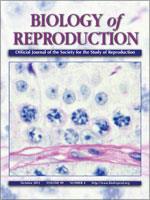The prostate gland is unique in that it undergoes rapid regression following castration but regenerates completely once androgens are replaced. Residual ductal components play an important role in the regeneration of a fully functional prostate. In this study, to examine how androgen status affects prostate structure and components, we conducted histopathological studies of the involuted and regenerated mouse dorsolateral prostate (DLP). In the castrated mouse DLP, the number of luminal epithelial cells decreased in a time-dependent manner. On Day 14 postandrogen replacement, the number of luminal epithelial cells was completely restored to the baseline level. In contrast, the number of basal epithelial cells gradually increased in the castrated mouse prostate. The Ki67-labeling index of prostate basal epithelial cells was significantly increased after castration. The number of basal epithelial cells decreased to baseline after androgen replacement. After castration, mRNA expression levels of specific growth factors, such as Fgf2, Fgf7, Hgf, Tgfa, and Tgfb, were relatively abundant in whole mouse DLPs. In organ culture experiments, basal epithelial proliferation was recapitulated in the absence of dihydrotestosterone (DHT). The proliferation of basal epithelial cells in the absence of DHT was suppressed by treatment with an FGF receptor inhibitor (PD173074). Moreover, FGF2 treatment directly stimulated the proliferation of basal epithelial cells. Taken together, these data indicated that the FGF2-FGF receptor signal cascade in the prostate gland may be one of the pathways stimulating the proliferation of basal epithelial cells in the absence of androgens.
How to translate text using browser tools
14 August 2013
Activation of FGF2-FGFR Signaling in the Castrated Mouse Prostate Stimulates the Proliferation of Basal Epithelial Cells
Manabu Kato,
Kenichiro Ishii,
Yoichi Iwamoto,
Takeshi Sasaki,
Hideki Kanda,
Yasushi Yamada,
Kiminobu Arima,
Taizo Shiraishi,
Yoshiki Sugimura
ACCESS THE FULL ARTICLE

Biology of Reproduction
Vol. 89 • No. 4
October 2013
Vol. 89 • No. 4
October 2013
basal epithelial cells
castration
fibroblast growth factor 2
fibroblast growth factor receptor
growth factor
Organ culture
prostate




